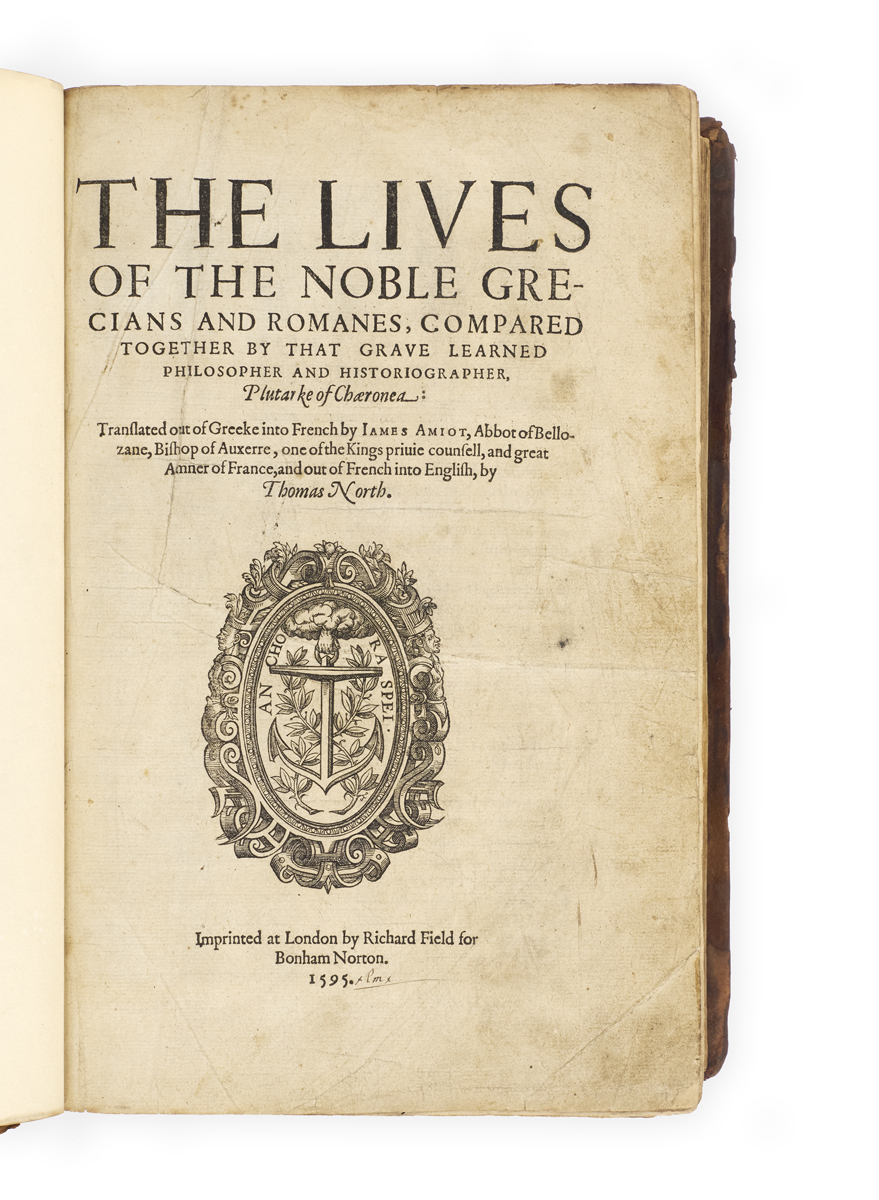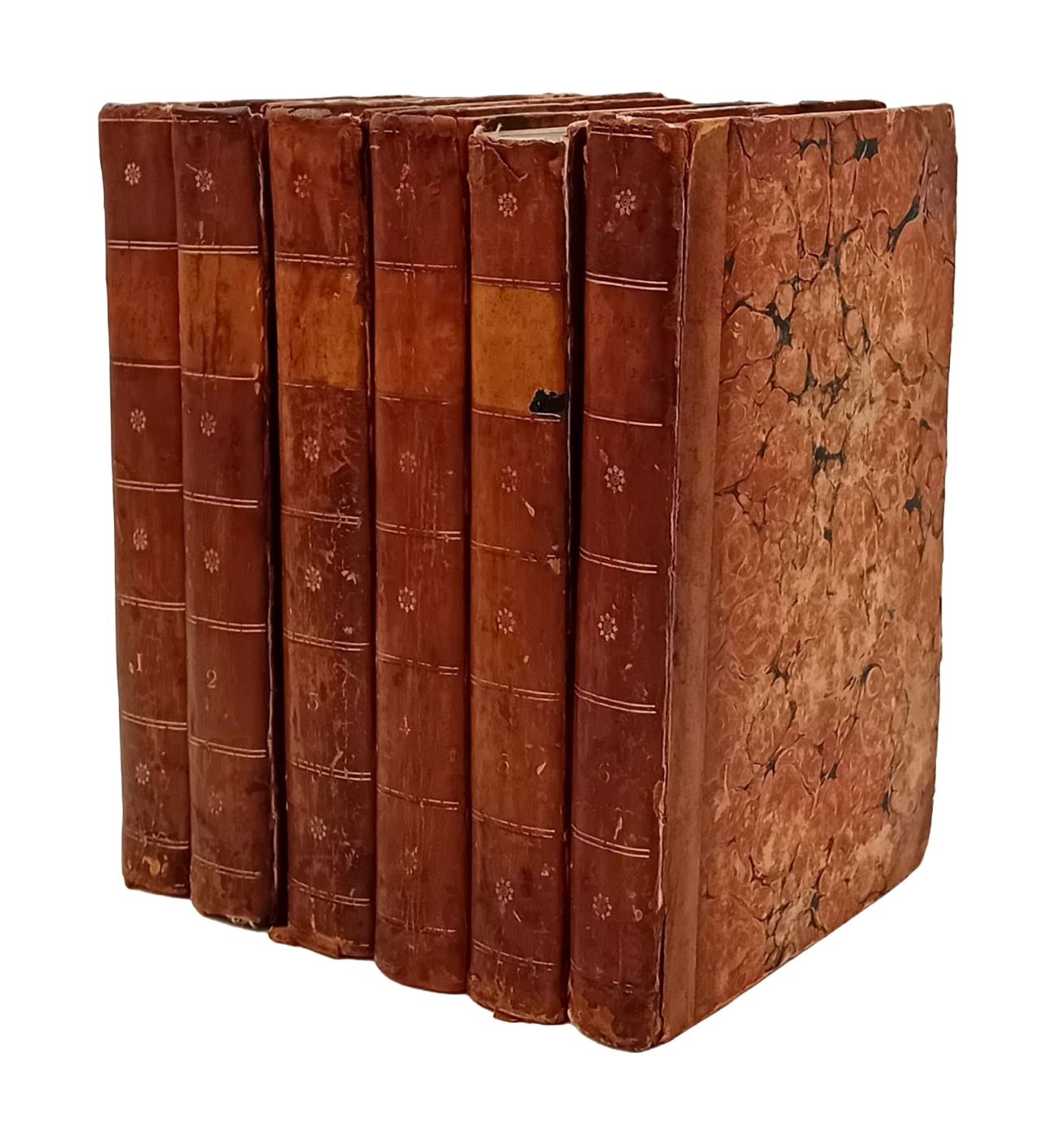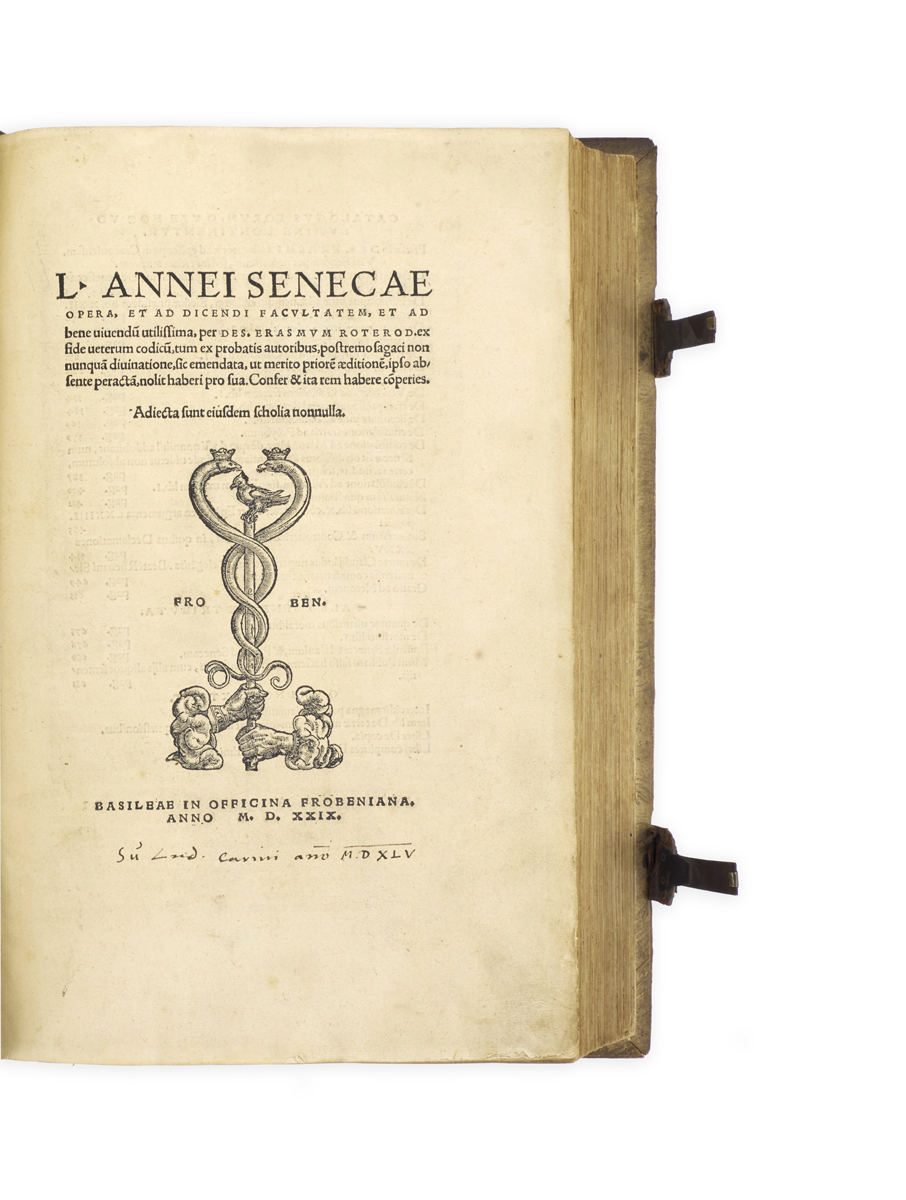
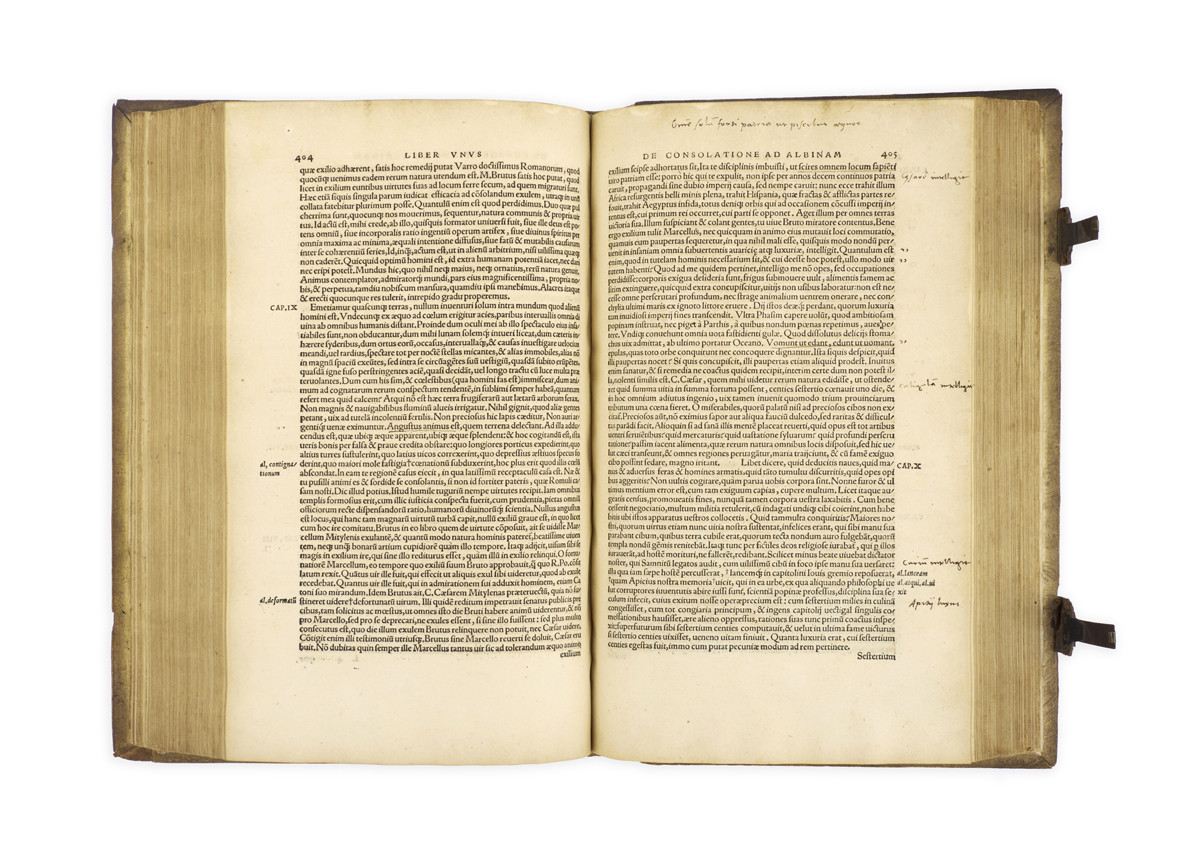
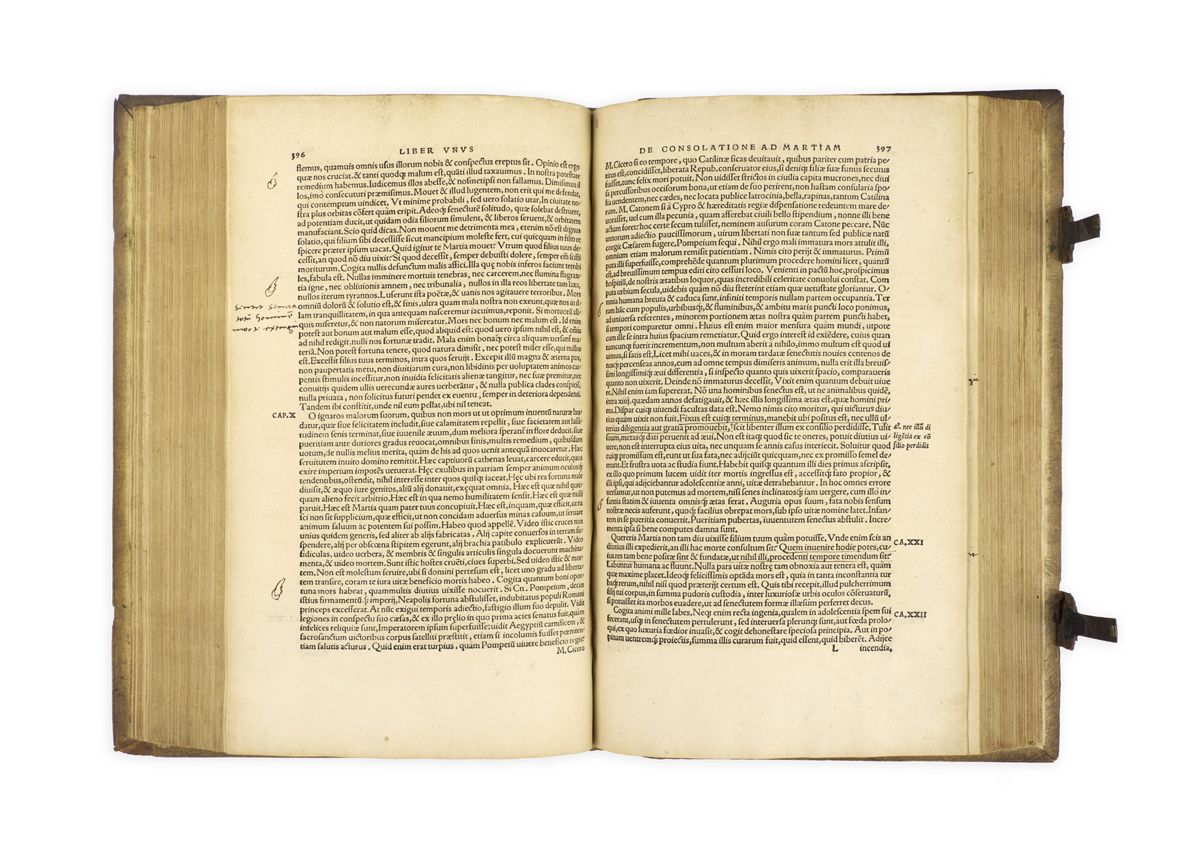
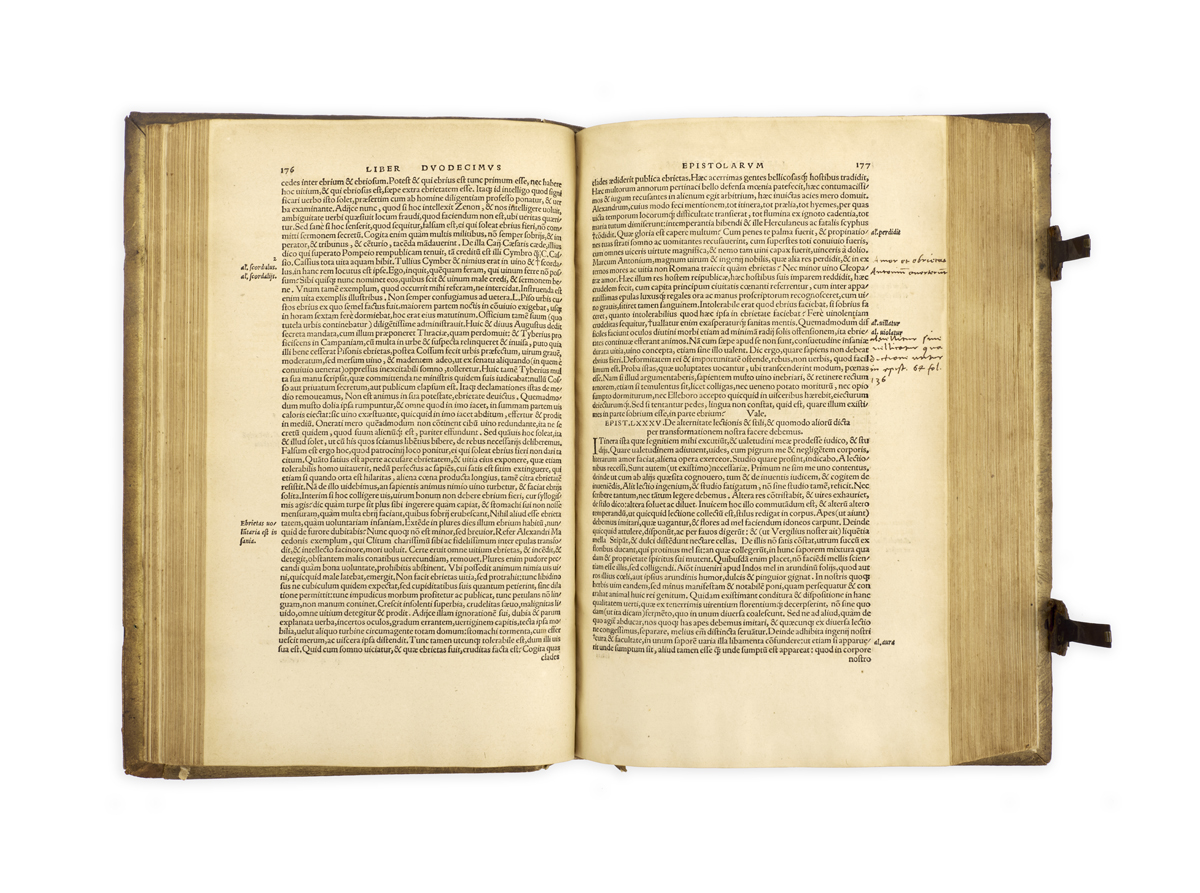
ANNOTATED BY A FRIEND AND FOE OF ERASMUS
'THE YOUNG VIPER HE HAD CARRIED IN HIS BOSOM'
SENECA, Lucius Annaeus.
L. Annei Senecae opera, et ad dicendi facultatem, et ad bene vivendu[m] utilissima, per Des. Erasmum Roterod. ex fide veterum codicu[m], tum ex probatis autoribus, postremo sagaci non nunqua[m] divinatione, sic emendata … Adiecta sunt eiusdem scholia nonnulla.
Basel, ‘in officina Frobeniana’, 1529 [(colophon:) Basel, Johann Herwagen, March 1537].
Folio, pp. [xvi], 690 (i.e. 694), [18 (index)]; woodcut Froben device to title and Herwagen device to last page, initials; occasional toning, a few light marks; very good in contemporary blind-stamped pigskin over wooden boards, roll incorporating medallion portraits of Erasmus, Luther and Melanchthon (dated 1540), bevelled edges, two brass catches and clasps, four raised bands to spine; small loss to lower cover, some wear to corners and spine ends, rubbed; inscription to title ‘Su[m] Lud. Carini an[n]o MDXLV’, his marginalia and manicules to c. 32 pp.

Added to your basket:
L. Annei Senecae opera, et ad dicendi facultatem, et ad bene vivendu[m] utilissima, per Des. Erasmum Roterod. ex fide veterum codicu[m], tum ex probatis autoribus, postremo sagaci non nunqua[m] divinatione, sic emendata … Adiecta sunt eiusdem scholia nonnulla.
Second Erasmus edition of the moral essays and letters of Seneca, owned and annotated by Ludovicus Carinus (d. 1569), friend and later foe of Erasmus himself.
Erasmus’s first edition of Seneca was published by Froben in 1515. This edition, jointly undertaken with Beatus Rhenanus, was much improved: ‘The second edition is so greatly superior to the first, that it is said Erasmus would have willingly withdrawn his name from that of 1515’ (Dibdin, An Introduction to … Greek and Latin Classics).
Carinus (or Kiel) first met Erasmus while studying at the University of Basel in 1514, and in 1522 he lived with the great Dutch humanist as his famulus. Erasmus commended Carinus as an exemplary young scholar and included him as a speaker in his 1523 colloquy Convivium poeticum. For reasons not entirely clear, the pair fell out in the summer of 1528, after which Erasmus referred to Carinus as ‘the young viper he had carried in his bosom’ (Contemporaries of Erasmus). When Carinus died in 1569 ‘he left a library which was purchased by a member of the Fugger family for six hundred florins’ (ibid.).
Carinus’s annotations in this volume show that he was principally interested in De brevitate vitae, on the value of time and the wise use of it, considered one of Seneca’s best essays, and in the three consolatory works De consolatione ad Polybium, ad Marciam, and ad Helviam matrem, in which Seneca consoles his mother from exile. Given his angry split with Erasmus it is also interesting to find two marginal notes by Carinus to Seneca’s De ira.
VD16 S 5759/S 5760. Somewhat confusingly this copy has the colophon of the 1537 reprint, although the text belongs to the 1529 edition since the errata are not corrected.
